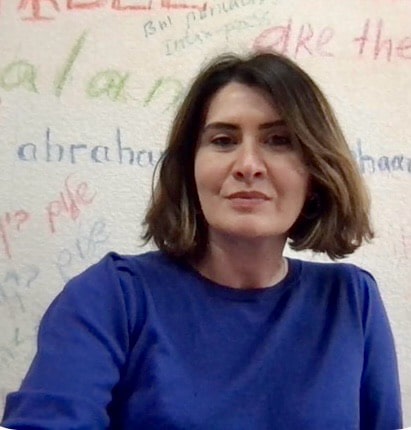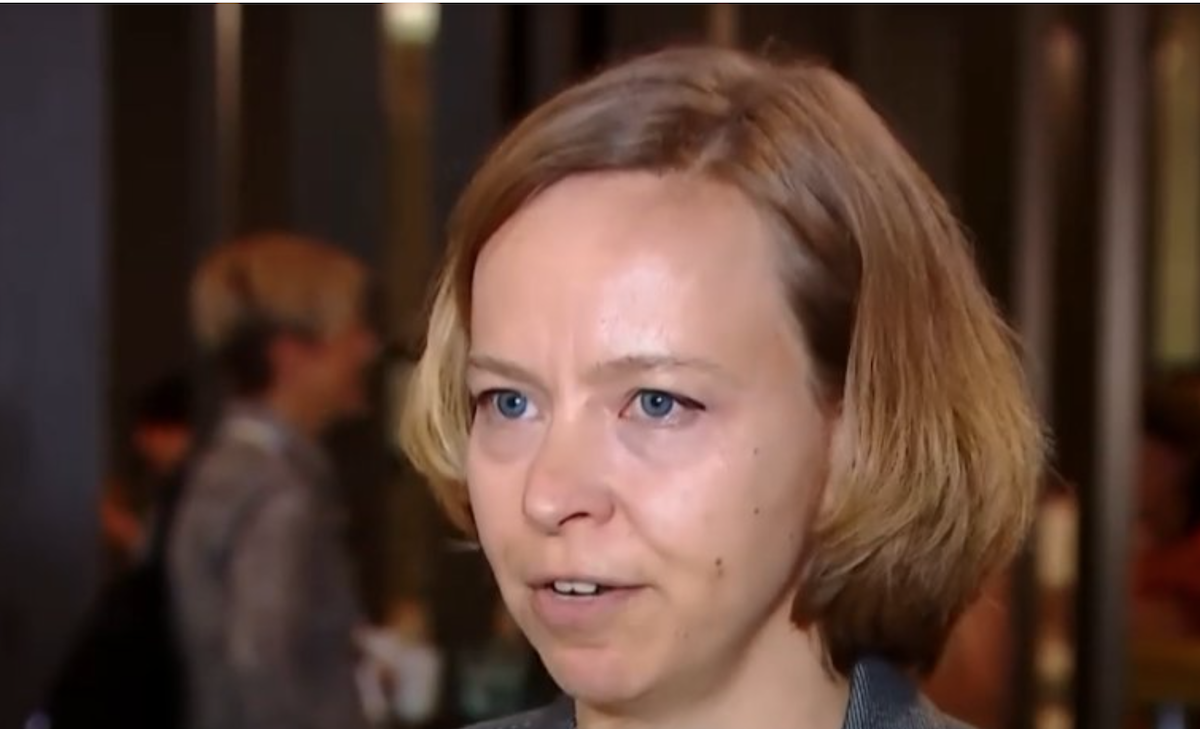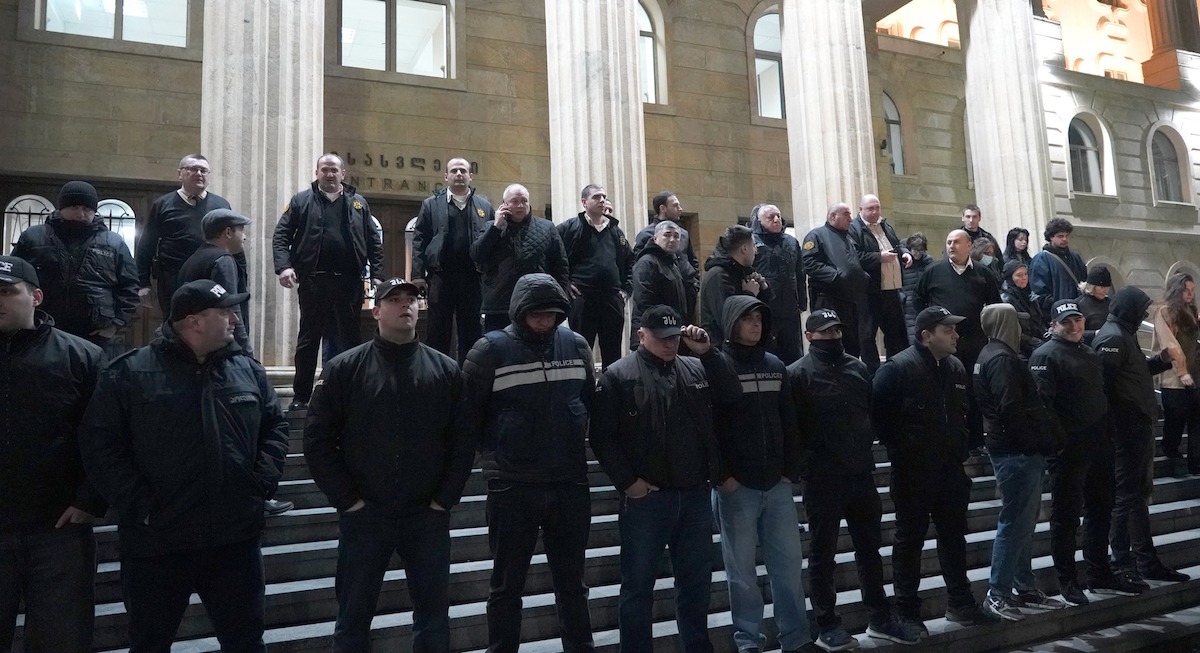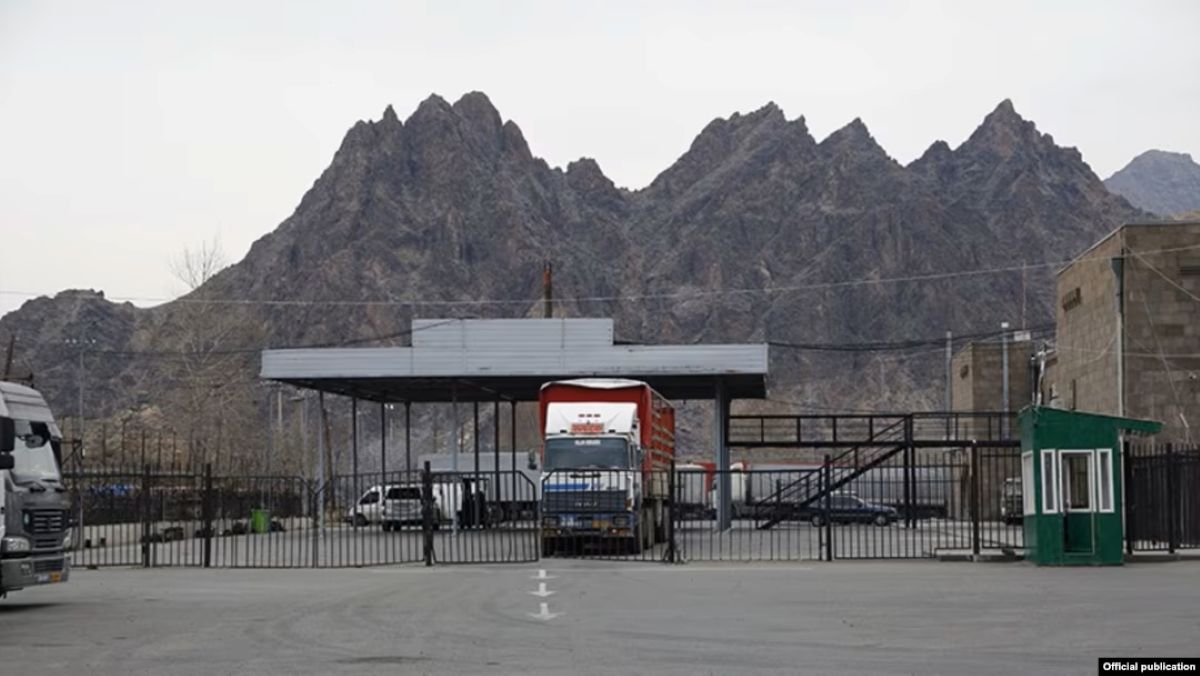Statement: “Independent journalism in Georgia cannot survive without international pressure on government”
Statement in support of Georgian media
23 international organisations working on press freedom and journalists’ rights have issued a joint statement, calling on the international community to increase pressure on the Georgian government.
In their statement, the organisations highlight the serious threat facing Georgian media due to repressive laws and legislative amendments. The statement also outlines the various methods the Georgian Dream regime is using to silence independent media and journalists.
According to the authors, independent journalism in Georgia cannot survive without sustained international pressure on the regime. The organisations called on Georgian Dream to end its attacks on the media, repeal repressive laws, and immediately release journalist Mzia Amaglobeli.
What does the statement say?
“Amid growing attempts by the Georgian government to consolidate authoritarian rule, independent media have come under unprecedented pressure and now stand on the brink of survival. Journalists are increasingly facing arrests, physical attacks, arbitrary fines, censorship, and both financial and institutional repression.
IPI [International Press Institute] joins international organisations defending media freedom, journalism, and human rights in once again urging the international community — especially the European Union — to apply effective pressure on the ruling Georgian Dream party to end its persecution of independent journalism and uphold democratic principles and media freedom. We reiterate our full solidarity with Georgian journalists who, despite mounting pressure, refuse to remain silent.
In recent months, Georgian Dream has passed several repressive laws, including a new law on the registration of foreign agents and amendments to laws on grants and broadcasting.
Media outlets and civil society leaders now face the risk of criminal prosecution if the state claims they are acting on behalf of ‘foreign principals’. Moreover, NGOs and media are required to obtain ‘the consent of the Georgian government or an authorised person/body appointed by the government’ before accepting any foreign funding. Even free training provided to journalists by international organisations is expected to be considered a violation of the law.
Independent media in Georgia may have only a few months left before they are forced to shut down, depriving the public of access to independent information.
Taking advantage of new amendments to the Law on Broadcasting, the authorities have already filed complaints with the Georgian National Communications Commission (GNCC) against Formula and Pirveli TV channels.
The complaints were filed over terms used by the broadcasters, including: ‘illegitimate parliament’, ‘illegitimate government’, ‘oligarchic regime’, and ‘regime prisoners’. Formula and Pirveli now face the threat of possible sanctions, demands for content corrections, fines, or even revocation of broadcasting licences. This is a clear attempt by the Georgian Dream party to impose strict censorship and silence independent media.
In recent months, journalists covering protests have also faced heavy fines. According to the Media Freedom Map, since 28 November 2024, 28 journalists have been fined 5,000 lari (about €1,600) each for ‘blocking roads’ during coverage of pro-European rallies in Tbilisi. Some journalists were fined multiple times.
The Georgian Public Broadcaster (GPB) has long served as a tool of Georgian Dream, obstructing journalists’ efforts to work free from political control. Recently, GPB management dismissed journalists Vasil Ivane Chikovani and Nino Zautashvili after they spoke out against political interference in the broadcaster’s operations, and later cancelled Zautashvili’s talk show Real Space.
Meanwhile, Mzia Amaglobeli — a veteran Georgian journalist and the founder and director of two of the country’s most prominent independent media organisations — has been unjustly held in pre-trial detention since her arrest in early January.
According to the Media Freedom Map, since 28 November 2024, at least 13 journalists have been detained or arrested on various charges. Since that date, 246 journalists have faced attacks, including physical assaults, smear campaigns, interference with professional activities, legal harassment, or fines.
These actions against media freedom are taking place amid a rapid and systematic erosion of the rule of law and democratic liberties.
Without sustained international pressure on senior officials in Georgian Dream and the heads of institutions responsible for media repression, independent journalism in Georgia will not survive.
The assault on media freedom, democratic liberties, and journalists’ rights in Georgia — amid rising authoritarianism and a shift in the country’s geopolitical orientation — carries broader consequences for democracy in the region. We urge the international community to apply effective pressure on Georgia and to support the country’s independent journalism. We call on the ruling Georgian Dream party to end attacks on the media, repeal repressive laws, and immediately release Mzia Amaglobeli.”
The statement was signed by:
- International Press Institute (IPI)
- European Federation of Journalists (EFJ)
- European Centre for Press and Media Freedom (ECPMF)
- Osservatorio Balcani Caucaso Transeuropa
- Index on Censorship
- Organized Crime and Corruption Reporting Project (OCCRP)
- Society of Journalists (Warsaw)
- South East Europe Media Organisation (SEEMO)
- Media Diversity Institute
- Media Diversity Institute Global
- Justice for Journalists Foundation
- RNW Media
- Ossigeno.info
- Reporters Without Borders (RSF)
- IFEX
- Association of European Journalists in Belgium (AEJ Belgium)
- IMS (International Media Support)
- Global Forum for Media Development (GFMD)
- Democracy Reporting International (DRI)
- Institute for Reporters’ Freedom and Safety (IRFS)
- PEN International
- Public Media Alliance (PMA)
- Committee to Protect Journalists (CPJ)





















